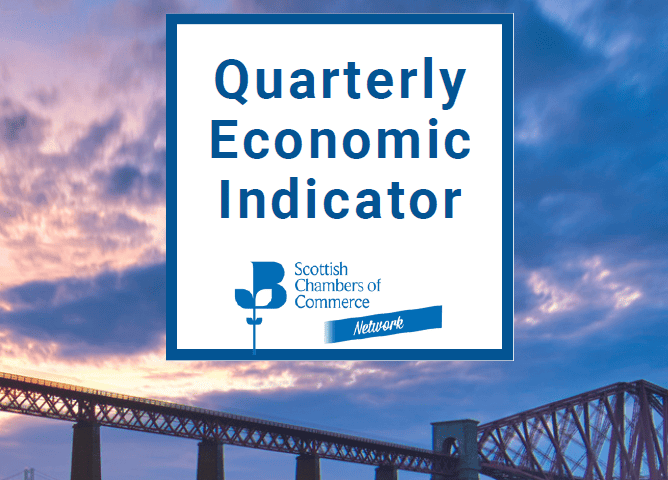Scottish Economy Stuck in Shadow of Low Growth

Inverclyde Independent Retailers Growth Programme: Empowering Local Retailers
15/01/2024
L-POS Ltd
25/01/2024Scottish Economy Stuck in Shadow of Low Growth


Persistently high inflation, higher borrowing costs, frozen investment and ongoing global uncertainty are placing businesses under significant pressure, according to the latest Scottish Chamber of Commerce member survey.
The survey was carried out in November and received responses from 420 companies in Scotland, where SMEs comprised 95% of the participants, each having fewer than 250 employees. Noteworthy findings from the survey include the ongoing difficulties in recruitment, with 40% of businesses expressing concerns about this aspect. Furthermore, labour costs continue to impact a significant proportion, affecting seven out of every ten firms.
Concern over inflation has fallen to 52% for the fourth quarter - compared to 75% in the third - and this is the lowest that concern from inflation was during 2023. However, 52% is still 20 percentage points higher than the 32% recorded pre-inflation crisis in the first quarter of 2021.
Concern over interest rates was reported by half of firms in the third quarter, but that has also now fallen by 10 percentage points to 40% for the fourth - although it is again higher than the 15% recorded in the first quarter of 2021.
While on balance, more firms continue to report increases in investment than falls, more than half of firms continue to report no changes to both total (55%) and training (54%) investment.
Less Scottish companies are indicating that they will raise prices this quarter compared to last, following the trend over 2023. Four in 10 now indicate they will raise prices in the next quarter, compared to 48% in the third quarter.
Stephen Leckie, president of the Scottish Chambers of Commerce, said: “Skills shortages and availability of talent continue to act as a major barrier for business expansion."
“The Scottish Government’s £2.4bn investment into colleges, universities and the wider skills system must remain agile to align with future economic demand to ensure we have a talent pool ready to contribute to the economy."
“Businesses are rightly asking why practical existing schemes such as the Flexible Workforce Development Fund have been scrapped, considering the challenges firms face regarding training and upskilling talent."
“On top of these concerns, companies are now grappling with the increasing tax burden of working in Scotland, making it more challenging to retain and attract talent," he continued, adding: “The introduction of a new income tax band is impacting on our competitiveness and depleting the spending power of individuals in the economy - anyone in Scotland who makes more than £28,850 will now pay higher taxes than workers elsewhere in the UK."
On inflation and interest rates, Leckie said that while sentiment has improved, the figures are still too high and contributing to low business confidence.
“Clarity on the future direction of interest rates policy will be critical to help unlock suppressed growth and investment in the economy."
“If as currently generally forecast, inflation continues to ease, we expect corresponding action on interest rates to stimulate much-needed investment.”
And on investment, Leckie stated that new and increasing regulations are adding extra costs onto businesses, squeezing the ability to invest and leading many sectors into legislation fatigue. “The decision by the Chancellor to make full expensing permanent in the Autumn Statement was welcome, but more must be done to shift the dial and incentivise firms to invest.”
João Sousa, deputy director of the Fraser of Allander Institute, said: “The final quarter of 2023 was full of policy events and economic news at both UK and Scottish levels setting out the context for the year ahead."
“Scotland might not be in a technical recession, but growth has remained subdued, in a stop-start pattern since the beginning of 2022."
“Prospects for 2024 are a little more positive than what transpired in 2023.,“ he continued, adding: “Confidence has proved resilient - sales growth has continued and some of the cost pressures are starting to ease - which gives us some confidence that there might be an uptick into more sustained economic growth in the year ahead.”
Responding to the report, Scottish Liberal Democrat economy spokesperson Willie Rennie commented: “Sluggish growth is the inevitable consequence of a Scottish Government that is flailing around in the dark with no economic plan."
“Will Humza Yousaf hit firms with a tax cut next or a tax rise? No one knows, probably not even him; and the result is that firms are put off from investing and everyone suffers."
“Scotland needs a serious approach to boosting economic growth, an end to chopping and changing tax policy and a laser-like focus on promoting investment in the industries of the future like renewable energy and biotech."


